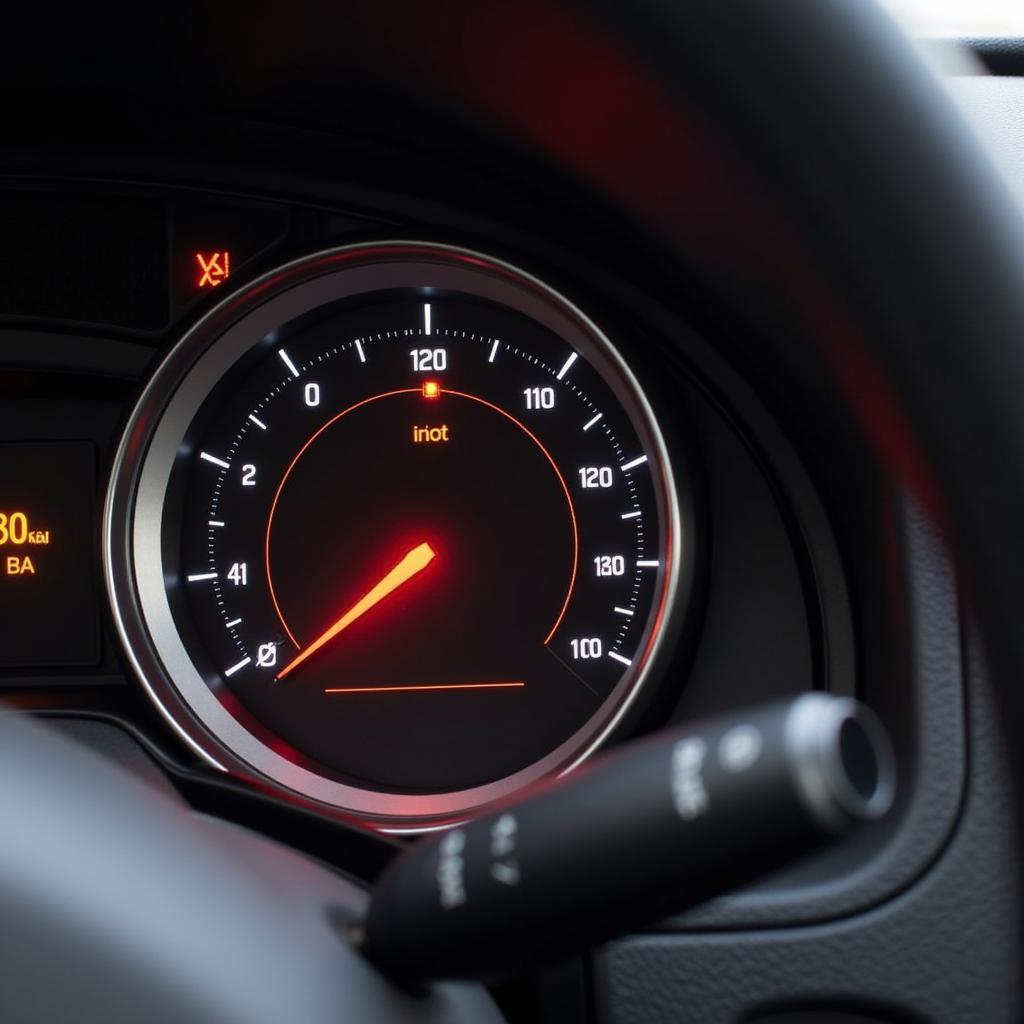Is your car refusing to start? A dead car battery or a faulty alternator are the usual suspects. Figuring out which one is the culprit can be tricky, but knowing how to differentiate the symptoms can save you time and money. This article will guide you through the process of diagnosing whether you have a car battery dead or alternator problems and offer solutions for getting back on the road.
Identifying a Dead Car Battery
A dead battery is often the first thing that comes to mind when your car won’t start. Several signs point directly to a battery issue. These include:
- Dim headlights: If your headlights are noticeably dimmer than usual, especially when the engine isn’t running, it’s a classic sign of a weak battery.
- Slow cranking: When you turn the key, the engine cranks slowly or struggles to turn over.
- Clicking sound: A rapid clicking sound when you try to start the car indicates the battery doesn’t have enough power to engage the starter motor.
- Interior lights malfunctioning: Interior lights may be dim or not work at all if the battery is failing.
- Dashboard warning lights: Some cars display a battery warning light on the dashboard.
If you experience these symptoms, you might need a jump start. If the car starts and runs fine after a jump, it further strengthens the possibility of a dead battery.
Spotting a Faulty Alternator
While a dead battery is a common culprit, a faulty alternator can also prevent your car from starting or cause issues while driving. Here are some telltale signs of alternator problems:
- Dim or flickering headlights: Similar to a dead battery, a failing alternator can cause dim headlights, but they might also flicker or become brighter when you rev the engine.
- Battery warning light: The battery light on your dashboard will often stay illuminated while the engine is running if the alternator is failing.
- Strange noises: Whining or growling noises coming from the engine compartment can indicate a problem with the alternator’s bearings or belt.
- Electrical issues: Problems with power windows, radio, or other electrical accessories can point to a faulty alternator.
- The car stalls while driving: If your car dies while driving, a failing alternator is a likely cause as it’s not recharging the battery.
 Signs of a Faulty Alternator
Signs of a Faulty Alternator
Testing Your Car’s Electrical System
If you’re unsure whether it’s a car battery dead or alternator, several tests can help pinpoint the problem.
- The Jump Start Test: Jump-start your car. If it starts but dies again shortly after, the alternator is likely the problem. If it continues running, the battery was likely the issue.
- The Voltage Test: Use a multimeter to test the battery voltage. A fully charged battery should read around 12.6 volts. A lower reading suggests a weak or dead battery.
- The Alternator Output Test: With the engine running, use a multimeter to test the voltage at the battery terminals. It should read between 13.5 and 14.5 volts. A lower reading indicates the alternator is not charging properly.
Remote Diagnostics and Software Solutions
“Remote diagnostics are revolutionizing car repair, allowing us to pinpoint issues and even implement software fixes without the car ever entering a shop,” says Michael Stevenson, Senior Automotive Electrical Engineer at AutoTech Solutions Inc. “This technology is particularly effective for alternator and battery-related issues, often eliminating the need for costly replacements and reducing downtime for the driver.”
Conclusion
Determining whether you have a car battery dead or alternator issues can be challenging, but understanding the symptoms and performing simple tests can help you identify the culprit. Remote diagnostic and software solutions offer advanced options for quickly and efficiently addressing these issues. By taking the time to properly diagnose the problem, you can avoid unnecessary repairs and get back on the road safely. Remember to consult with a qualified mechanic for any complex electrical issues or if you’re uncomfortable working on your car’s electrical system.
FAQ
- Can a bad alternator drain a car battery? Yes, a faulty alternator will not recharge the battery, eventually leading to a dead battery.
- How long does a car battery last? Typically, a car battery lasts between three and five years.
- How can I prevent battery and alternator problems? Regular maintenance, including battery and alternator checks, can help prevent issues.
- Is it safe to drive with a bad alternator? No, driving with a bad alternator can lead to your car stalling, creating a dangerous situation.
- Can I replace an alternator or battery myself? While possible, replacing these components requires some mechanical knowledge. If you’re unsure, consult a mechanic.
- What are the signs of a failing alternator belt? Squealing noises, visible cracks or fraying, and difficulty steering are common signs of a worn alternator belt.
- How much does it cost to replace a car battery or alternator? Costs vary depending on the make and model of your car, but expect to pay between $100 and $500 for either component.

